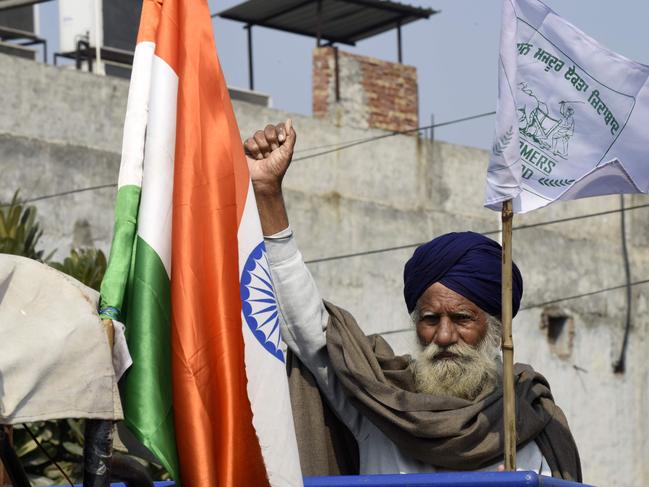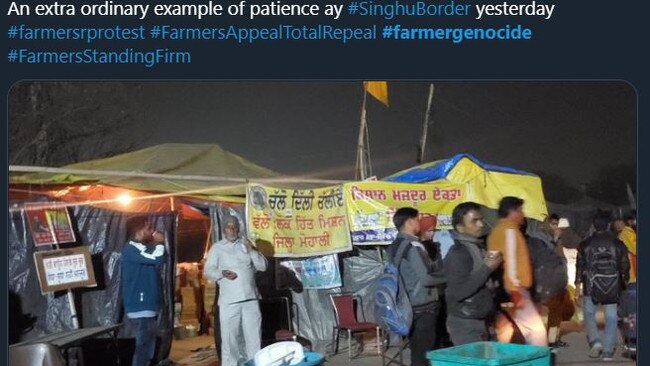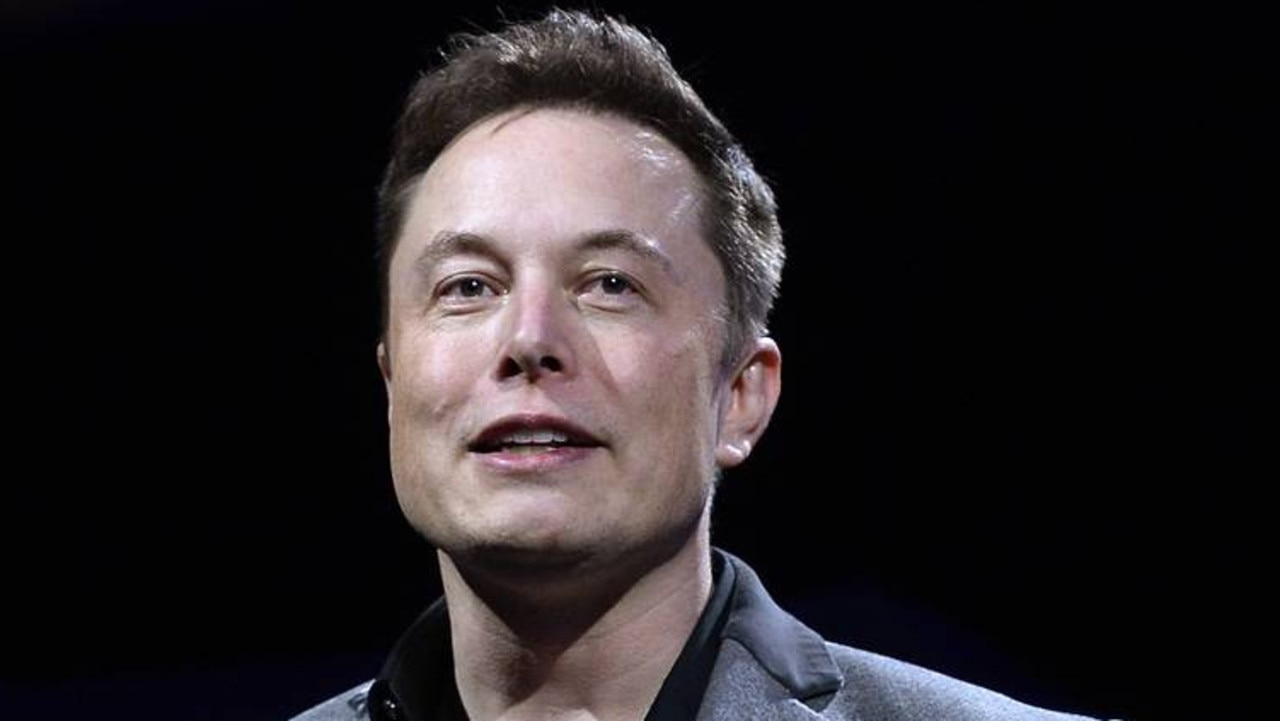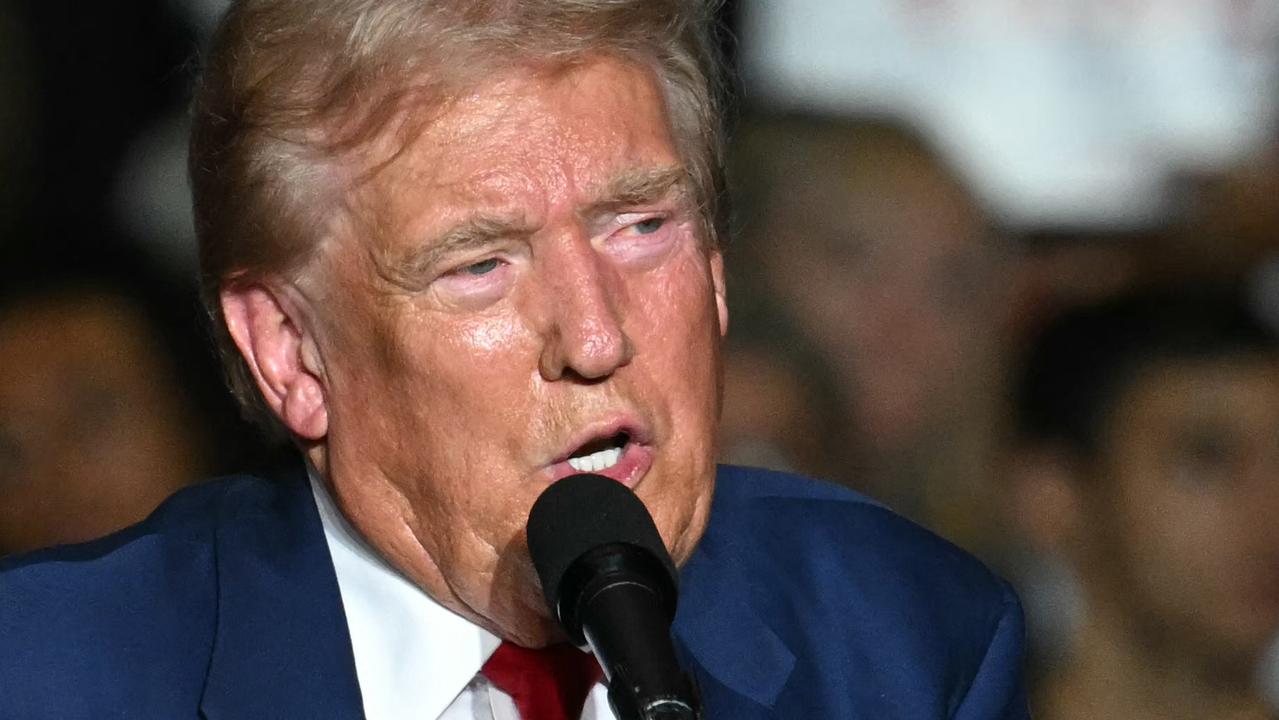India versus Twitter: The reason why thousands are fighting Modi’s agriculture laws
India’s government has ordered a US company censor its product, but the company argues the government in actually violation of the law.

Online
Don't miss out on the headlines from Online. Followed categories will be added to My News.
Twitter is defying the orders of India’s democratically elected government to remove posts amid ongoing debate over how much power social media platforms should have over speech and expression.
India’s government, led by Prime Minister Narendra Modi, has been demanding Twitter remove posts relating to protests happening in the country against recently introduced legislation that opponents say hurts small farmers to the benefit of big corporations.
While the government is demanding it remove some posts, Twitter is refusing to comply with some orders because it doesn’t believe it has to under Indian law.
On Wednesday the company said it was taking “proactive efforts to enforce our rules and defend our principles in India” and said it had received “several separate blocking orders by the Ministry of Electronics and Information Technology (MeitY)”.
RELATED: Anti-vaxxer Kennedy shut down

RELATED: Simple question getting FB users in trouble
Two were emergency orders Twitter briefly complied with before reneging “in a manner that we believe is consistent with Indian law”.
After it went back on the removal, MeitY issued the company a noncompliance notice.
In a statement MeitY said that the Ministry’s secretary Ajay Sawhney “told the Twitter representatives that in India, we value freedom and we value criticism because it is part of our democracy … but freedom of expression is not absolute and it is subject to reasonable restrictions”.
Mr Sawhney also highlighted that Twitter is still “welcome to do business in India” but “must also respect the Indian laws and democratic institutions”.
Twitter believes it is respecting and acting consistently with Indian law and is exploring its options under the law.
One order was for Twitter to remove tweets and accounts using hashtags related to “farmer genocide”.
RELATED: Tiny thing Instagram wants hidden


Instead, Twitter said it “took steps to reduce the visibility of the hashtags containing harmful content, which included prohibiting them from trending on Twitter and appearing as recommended search terms”.
More than 500 accounts were found to be in “clear violation” of Twitter’s rules and enforcement action was taken, including the permanent suspension of some accounts.
Some accounts it had suspended were restored.
Last week, Buzzfeed News reported India’s government had threatened to fine or even jail Twitter employees for up to seven years over the restoration of the accounts.

WHY ARE INDIAN FARMERS PROTESTING?
For months now protests have been ongoing in India against new agriculture laws they believe could stop them making a living, marching on the capital New Delhi in tractors and on foot to demand its repeal.
Mr Modi has defended the laws, saying they give farmers more power over the prices they can charge and who they can sell to.
A watershed moment in the history of Indian agriculture! Congratulations to our hardworking farmers on the passage of key bills in Parliament, which will ensure a complete transformation of the agriculture sector as well as empower crores of farmers.
— Narendra Modi (@narendramodi) September 20, 2020
Opponents say the laws make it easier for big corporations to exploit agricultural workers who make up a large proportion of India’s workforce (and by extension, are a sizeable political force in the electorate).
Before the new laws were introduced, the government of India guaranteed the price of certain crops.
The produce would then be sold at auction, with restrictions on who was able to purchase it.
The new laws allow farmers to sell to anyone at any price, and its hoped they’ll attract investment in agriculture, an industry lagging behind the rapidly modernising Indian economy.

The concern is that big corporate entities will use the ability to sell to anyone for whatever to drive down prices, a financial hit they can absorb better than smaller farmers.
Despite the protests, Mr Modi has made no indication the laws will be repealed.
In a recent tweet he shared a video of himself speaking in the parliament, saying “a progressive society will always embrace reforms with changing times”.

WHAT TOOK TWITTER SO LONG?
Speaking to the New York Times’ On Tech newsletter, University of California law professor and former UN special rapporteur on free expression David Kaye backed Twitter’s decision but wondered why it has taken them so long to stand up to the government.
“I’m not sure why Twitter chose this moment to take a stand and not two or three years ago, when the company took action against people posting about Kashmir after pressure from the government,” Prof Kaye said.
Kashmir is a hotly disputed region that India, Pakistan and China have been fighting over since the middle of last century.
“In my role at the United Nations back then, I asked Twitter to explain what happened,” Prof Kaye said.
“The company didn’t answer. In a way, this week was Twitter’s response.”
He raised concerns about the size and lack of accountability for the power social media platforms now wield over free speech, and said a lack of transparency from the companies gave the impression they were making it up as they go, with “seat-of-the-pants decisions in response to public pressure” but said governments need to create smarter legislation.
The expulsion of former US President Donald Trump from Facebook and Twitter after the January 6 riots at the US Capitol Building has raised questions for some over what to do about the handful of social media companies that dominate the space.
One suggestion has been for countries to build their own apps and networks for “their leaders to reach their people directly”.
A proponent of that plan is cryptocurrency entrepreneur turned Silicon Valley investor Balaji Srinivasan, who argued “the world cannot be ruled by American corporations” in a widely circulated Twitter thread last month.
He pointed to China’s status as a country “already US-independent when it comes to communication and payments infrastructure” as a source of inspiration.
Unlike neighbouring India, the US, Australia and other like-minded countries, China is not a democracy and doesn’t have so much as a passing commitment to freedom of speech.
Originally published as India versus Twitter: The reason why thousands are fighting Modi’s agriculture laws


